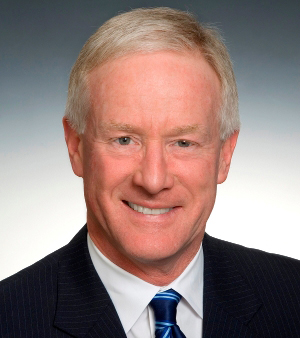
A new report on the state of Canada's municipalities proves just how bad the country's outdated tax system has made things for Metro Vancouver cities, say a pair of mayors from that region.
Local governments are hitting a "tipping point" due to the strain of tightened revenue sources, stricter environmental regulations and mounting infrastructure repairs, according to the report released May 29 by the Federation of Canadian Municipalities.
FCM is the self-described "national voice of municipal government" representing 86 per cent of Canada's population in communities of every size. The group's alarm was quickly taken up by Port Coquitlam Mayor Greg Moore and District of North Vancouver Mayor Richard Walton, who said it showed the way tax dollars get distributed needs to change.
Echoing recent complaints by other B.C. mayors, they said too much burden is being downloaded by higher levels of government onto local politicians who lack the levers to pry more money loose from their own bases.
"We're closest to our tax payers here," said Walton, adding, "We're being told we're having to go ahead with large capital projects without federal or provincial support."
That system, said Walton, who also sits as Metro Vancouver's finance chair, is not one that works very well.
The provincial and federal governments "have the latitude to enable a lot of legislation, we don't. We have property tax and fees for service, that's it. So when we find these glaring needs for social services in communities, we don't have many ways of funding those," said Walton.
As a result, many cities have opted to underfund roads, sewers, bridges and other capital projects to pay for social housing, mental health services, and other projects city residents want and need, he said.
Eight per cent of taxes go to local gov't
Currently, the bulk of tax dollars collected go to the provincial and federal governments, which take 92 per cent of the total, leaving only eight per cent to municipalities, said the FCM report. The report added that in recent decades, cities have had to take on more responsibilities -- like providing social housing and mental health services -- as federal and provincial governments cut funds for them from their budgets.
Meanwhile, Canadian communities face $120 billion in costs to fix aging infrastructure, said Charley Beresford at the Columbia Institute's Centre for Civic Governance in an earlier Tyee article.
Walton said that provincial and federal governments face ballooning costs too -- particularly health care spending, which he said could chew up most of the provincial budget in the next 20 years unless checked. However, he added, plenty of options existed to ensure municipalities get needed revenue.
"In the United States, many jurisdictions have access to sales tax," he noted as just an example, before adding that in Scandinavia local governments get a chunk of the federal income tax. "We don't get a nickel of federal income tax in this country."
Instead, he said, communities often have to go cap in hand to federal provincial governments, especially when seeking funds for big capital projects like bridges and sewage treatment plants, and that can create problems.
The current system for big projects "is very frustrating," he said. "We will be given a deadline for environmental reasons," Walton said, referring to upgrades to the District of North Vancouver's two waste water treatment plants. "And we don't have any commitment of federal funds yet."
"We have to commit for things for things when we don't know where the money is going to come from," said Walton. "We're on different time-clocks."
Call for a 'new deal'
He said that if provincial of federal commitments fall through, it's local taxpayers who have to pick up the tab.
Earlier this month, 86 B.C. city mayors met in Penticton to discuss the financial pain faced by B.C. cities and to call for a "new deal" with the province.
A similar meeting of Canadian big-city mayors will convene in Saskatoon this Thursday before the FCM's annual mayor's conference in early June. A FCM press release said that top on the agenda will be the issues discussed in their recent report, as well as the Conservative government's $33 billion municipal infrastructure plan, set to expire in 2014.
Ultimately, however, the initiative for change will have to come from the federal and provincial governments, said Walton. "No amount of whining at our level of government is going to change things."
"It is my hope that the FCM report will bring into stark relief the challenges our communities face, and that we can look forward to an expanded partnership with the federal and provincial governments in meeting our nation's social, economic and environmental needs," said Port Coquitlam Mayor Greg Moore, who also is board chair of Metro Vancouver. ![]()
Read more: Politics














Tyee Commenting Guidelines
Comments that violate guidelines risk being deleted, and violations may result in a temporary or permanent user ban. Maintain the spirit of good conversation to stay in the discussion.
*Please note The Tyee is not a forum for spreading misinformation about COVID-19, denying its existence or minimizing its risk to public health.
Do:
Do not: